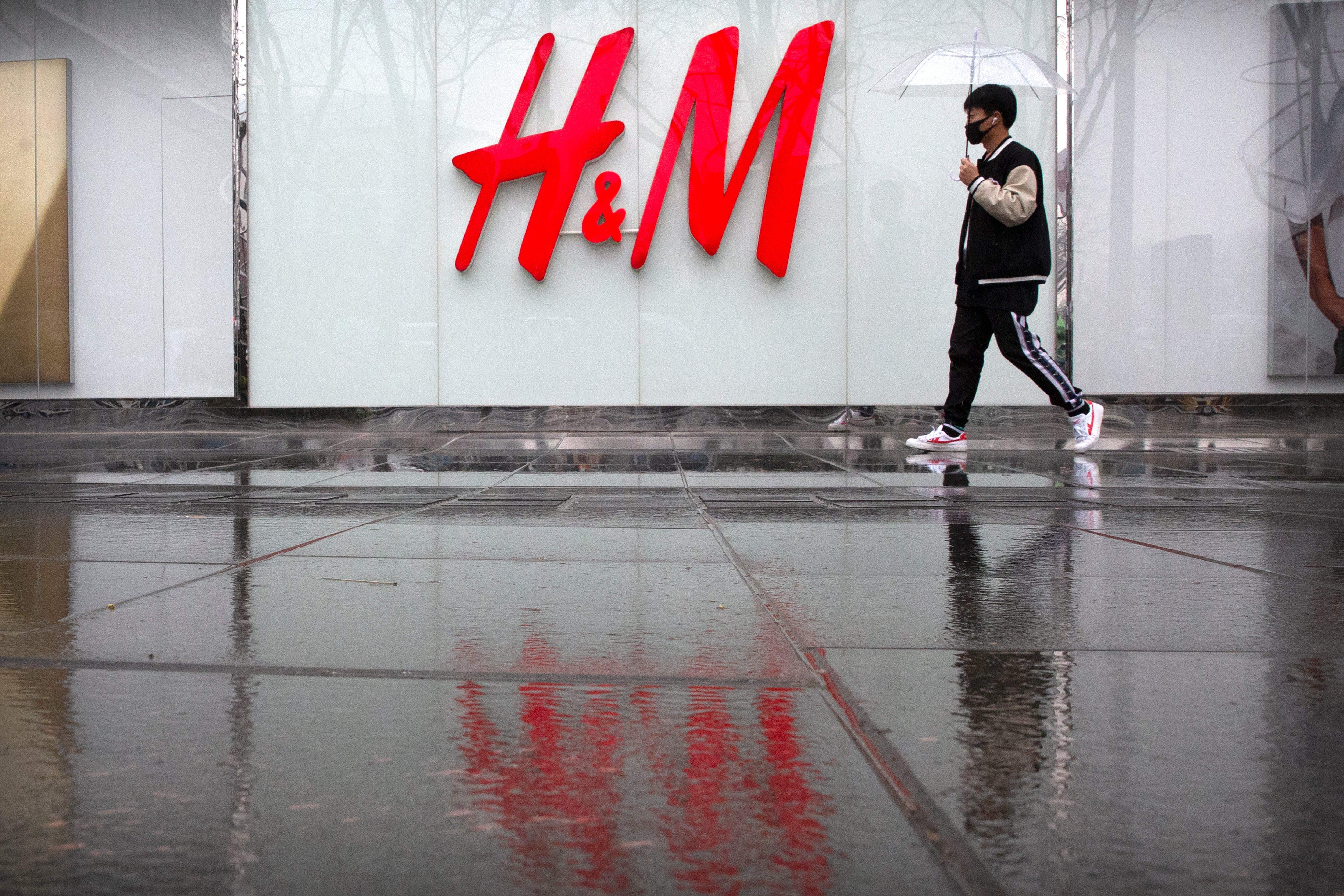China says H&M changed online map after criticism
Chinese regulators say H&M has agreed to change a “problematic map” online following government criticism, adding to pressure on the Swedish retailer amid a conflict with Western governments over China's policies in its Xinjiang region

Your support helps us to tell the story
From reproductive rights to climate change to Big Tech, The Independent is on the ground when the story is developing. Whether it's investigating the financials of Elon Musk's pro-Trump PAC or producing our latest documentary, 'The A Word', which shines a light on the American women fighting for reproductive rights, we know how important it is to parse out the facts from the messaging.
At such a critical moment in US history, we need reporters on the ground. Your donation allows us to keep sending journalists to speak to both sides of the story.
The Independent is trusted by Americans across the entire political spectrum. And unlike many other quality news outlets, we choose not to lock Americans out of our reporting and analysis with paywalls. We believe quality journalism should be available to everyone, paid for by those who can afford it.
Your support makes all the difference.Chinese regulators on Friday said H&M has agreed to change a “problematic map” online following government criticism, adding to pressure on the Swedish retailer amid a conflict with Western governments over China s policies in its Xinjiang region.
The ruling Communist Party lashed out at H&M, Nike and other shoe and clothing brands last week after the United States, the European Union, Britain and Canada imposed travel and financial sanctions on officials accused of abuses in Xinjiang in China’s northwest.
Friday’s announcement by the Shanghai city government gave no details, but travel, clothing and other brands have been pressured to change how Taiwan, the island democracy which Beijing claims as part of its territory, and other sensitive areas are depicted on their websites. H&M didn’t respond to a request for information.
The city government said “Internet users reported to management of H&M’s website that there existed a ‘problematic map of China,’ and the Shanghai municipal bureau of planning and natural resources ordered it to be quickly corrected.”
H&M managers “corrected the error as soon as possible” after being summoned to meet with regulators, it said on its social media account.
The ruling party’s Youth League criticized H&M last week for saying in March 2020 it would no longer buy cotton from Xinjiang. Foreign researchers and governments say more than 1 million people from predominantly Muslim ethnic minorities are held in detention camps there.
Official media have criticized Nike, Burberry, Adidas and Uniqlo for expressing concern about reports of forced labor in Xinjiang. H&M goods have disappeared from China’s major e-commerce platforms, but other brands still are available. Dozens of Chinese celebrities have pulled out of endorsement deals with foreign brands.
Chinese officials reject reports of abuses and say the camps are for job training to support economic development and combat Islamic extremism.
It isn’t clear why H&M was singled out, but Beijing’s relations with Sweden have been strained since 2005 after a Chinese-born Swedish publisher disappeared in Thailand and surfaced in China.
Companies also have been pressured to change how maps show China’s border with India and disputed areas of the South China Sea.
Beijing uses access to China’s huge consumer market as leverage to pressure brands to conform to its official positions.
They usually comply, but Xinjiang is unusually sensitive. Global brands want to avoid provoking Chinese retaliation but also face pressure abroad to distance themselves from abuses.
In a statement this week, H&M praised its Chinese suppliers and said it is “working on next steps with regards to material sourcing” but gave no indication of possible steps that might mollify the Communist Party.